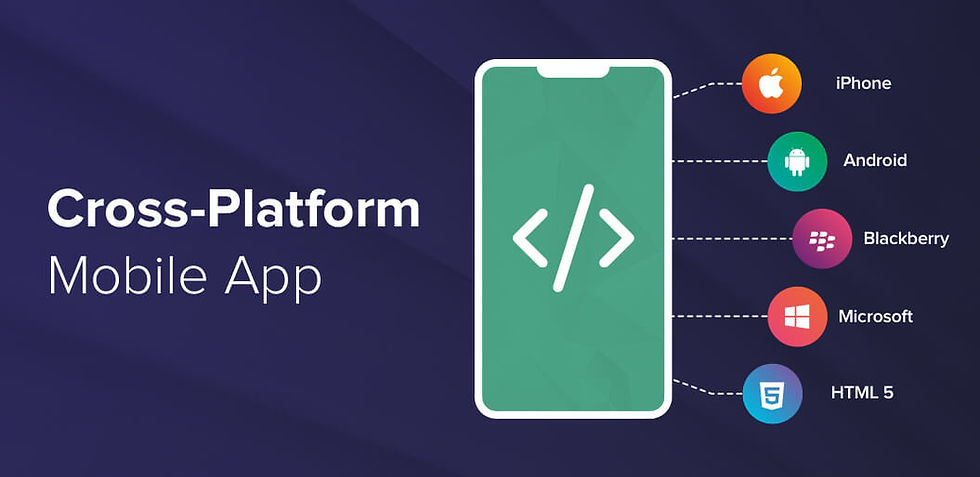Build a Winning Mobile App Development Team in 2025
- shehreenfatima773
- Jul 11
- 4 min read

In today's competitive digital market, having the right mobile app development team can make or break your app’s success. Whether you're building a new product or scaling an existing one, the structure and expertise of your dev team matter. From front-end specialists to QA testers and project managers, assembling the right mix of talent is critical. If you're looking to move fast with high-quality results, it’s smart to hire dedicated Flutter app developers to speed up cross-platform development and cut costs.
In this guide, we’ll cover everything you need to build a high-performing mobile app team in 2025—from team roles and tools to real-world case studies and expert FAQs. Let’s dive in.
H2: Why You Need a Specialized Mobile App Development Team
A mobile app development team isn't just a group of coders. It’s a blend of designers, testers, engineers, and strategists working toward a single goal—shipping a usable, scalable, and engaging mobile product.
According to the 2024 Stack Overflow Developer Survey, over 68% of companies now prioritize cross-functional mobile teams with deep specialization in frameworks like Flutter, React Native, and Swift. This means your team should include:
Product owner or project manager
UI/UX designer
Front-end & back-end developers
QA engineer
DevOps support
Case Study: When a Dubai-based retail startup launched its grocery app, it initially used freelance developers. After switching to a dedicated mobile team—including two Flutter devs and a UI/UX designer—they cut development time by 40% and user retention rose by 25% within three months.
H2: Key Traits of a High-Performing Mobile Development Team
To stay ahead in 2025, the ideal mobile app development team must master:
H3: 1. Agile Collaboration
Use Agile sprints and regular standups to streamline communication. Tools like Jira and ClickUp help track progress and prevent bottlenecks.
H3: 2. Cross-Platform Efficiency
Using Flutter allows the same team to ship Android and iOS versions with a single codebase. Teams that hire dedicated Flutter app developers report faster time-to-market and fewer bugs during QA.
H3: 3. DevOps-Driven Culture
Modern mobile teams integrate CI/CD pipelines, real-time crash analytics (e.g., Firebase Crashlytics), and feature flagging to deploy updates safely.
Stat: GitHub’s Octoverse 2024 report showed a 58% increase in mobile projects integrating automated pipelines like GitHub Actions and Bitrise.
Building the Right Team Structure
Start small, scale smart. Depending on your app's scope:
App Type | Suggested Team Setup |
MVP/Startup App | 1 Flutter Dev, 1 Designer, 1 PM, 1 QA (shared) |
Mid-Sized Business | 2 Flutter Devs, 1 Backend Dev, 1 UI/UX, 1 QA, 1 PM |
Enterprise App | Full Agile team with DevOps, BA, API Devs, Security Lead |
Always ensure roles don’t overlap too much. For example, your designer shouldn't double as QA—specialization leads to quality.
H3: Best Tools to Empower Your Mobile Dev Team
To get the best output, equip your mobile app development team with:
FlutterFlow / CodeMagic: Speeds up Flutter development
Firebase: Real-time analytics, authentication, crash reporting
Figma + Zeplin: Seamless design-to-dev handoffs
Notion + Jira: Track sprints and documentation in one place
Appium + BrowserStack: Automated mobile testing
“We tested FlutterFlow with our internal team and cut UI build time by nearly 30%. The drag-and-drop components helped us go from concept to test build in under 48 hours.”— Senior Dev at UAE Fintech Startup
How to Hire the Right Mobile App Developers
When you’re scaling or starting, it's tempting to go for the cheapest option. But quality talent pays off. Here’s what to look for:
H3: 1. Platform Expertise
Prioritize Flutter, Swift, and Kotlin experience for native-like apps.
H3: 2. Portfolio of Published Apps
Ask to see live apps in the App Store or Google Play. Look for projects with similar scale or domain.
H3: 3. Communication Skills
Great code isn’t enough. Clear communicators reduce delays and errors.
If speed, cost-efficiency, and app quality are your goals, the best strategy is to hire dedicated Flutter app developers—especially for MVPs and cross-platform apps.
Key Takeaways: Building Your 2025 Mobile App Team
A structured mobile app team accelerates delivery and improves quality.
Use Agile processes and modern tools like FlutterFlow, Firebase, and Jira.
Specialize roles—don’t rely on generalists for everything.
Choose experienced Flutter developers for scalable, cost-effective apps.
DevOps and CI/CD are essential for ongoing app success in 2025.
FAQ: Expert Insights on Mobile App Teams
Q1: Should I build an in-house team or hire remotely?
If speed and budget are key, go remote. Remote teams—especially in tech hubs like Pakistan, Ukraine, and India—offer strong talent at lower costs. Just ensure regular communication and task tracking.
Q2: What’s the best size for a startup mobile dev team?
Start with 3–5 members: 1 project manager, 1 UI/UX, 1–2 Flutter devs, and 1 QA tester. Scale as your app matures.
Q3: How do I retain good mobile developers?
Offer clear roadmaps, flexible hours, and interesting projects. Great developers want ownership and growth—not micromanagement.
Final Thoughts
Choosing the right mobile app development team can mean the difference between an app that fails fast and one that scales big. Whether you’re launching an MVP or growing into new markets, invest in your team’s structure, tools, and expertise. And if you're aiming for efficiency and performance, make sure to hire dedicated Flutter app developers from day one.




Kommentare